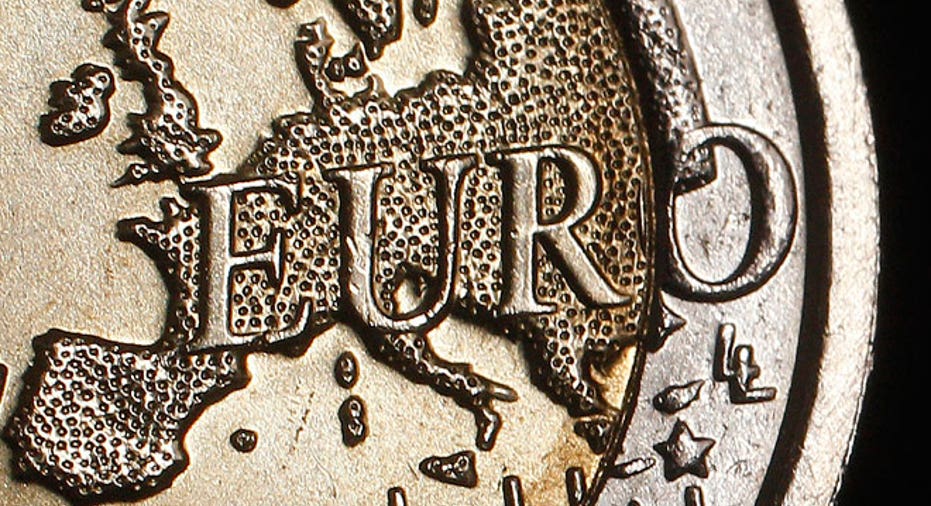Cyprus Bailout: Insolvent Euro Nations Continue to Cede Sovereignty

Over the weekend the tiny nation of Cyprus (and its overseas depositors) became the latest Europeans to learn the painful rule that is increasingly guiding the continent’s debt crisis: the less solvent a country is, the more sovereignty its citizens must relinquish.
In exchange for financing expensive bailouts of Greece, Spain and now Cyprus, the European Central Bank and richer countries like Germany are demanding a greater say on matters traditionally left up to local politicians like tax rates and retirement ages.
All of this is part of an effort by European leaders to fix the structural imperfections that the eurozone was created with by pushing all 17 eurozone members closer and closer together.
“These are all ways of monetary and fiscal policy being turned over to greater authorities. I think this is how the new Europe will emerge,” said Marc Chandler, global head of currency strategy at Brown Brothers Harriman.
While highlighted by the controversial effort to penalize depositors, the proposed 10 billion euro rescue of Cyprus and its outsized banking system contains both conventional and unconventional methods of ceding more sovereignty.
Cyprus Relinquishes Power
On the conventional front, the so-called troika of the ECB, the European Union and the International Monetary Fund have forced Cyprus to agree to raise revenue by hiking corporate tax rates, selling off state assets and improving anti-money laundering efforts.
These unpopular concessions are like ones reached elsewhere in Europe in exchange for bailouts. For example, Greece has reluctantly signed off on painful labor reforms like axed salaries and pensions, while Spain was forced to raise its VAT tax.
“The less solvent you are, the more sovereignty you have to give up."
However, with public debt at the end of 2012 at 86% of gross domestic product, by some measures the tiny island of Cyprus is even less solvent than these previous bailout recipients.
Barclays estimated Cyprus’s bank recapitalization needs at about 60% of GDP, compared with 40% for Ireland, 27% for Greece and just 6.5% for Spain.
“The less solvent you are, the more sovereignty you have to give up,” said Chandler.
Depositors Could Be Hit
That’s where the unpopular and unconventional deposit levy comes into play.
For the first time during the current crisis, Germany is forcing Cyprus to raise about 5.8 billion euros by imposing a penalty on bank depositors, many of whom are actually Russians taking advantage of the country’s status as a tax haven.
Barclays estimates that 37% of all deposits in Cyprus are from nonresidents, 30% of which are from non-euro area countries like Russia. According to Moody’s, Russian banks had about $12 billion on deposits with Cypriot banks and corporate deposits accounted for another $19 billion.
“The only reason this makes any sense is that the overwhelming portion of large accounts in Cypriot banks are held by overseas depositors, mainly Russians,” Jack Goldstone, a senior fellow at George Mason University, wrote in a blog post. “This means that Europeans may not have to fear that their accounts in their banks will be treated the same way. Still, this is a crazy precedent.”
While clearly controversial and subject to ample revision, Chandler said this proposed levy on deposits is another extension of the solvency/sovereignty equation.
Cyprus is “very insolvent,” Chandler said, but Germany has said: “We don’t want to bail out Russian oligarchs. Depositors cannot have a free ride.”
Eurozone Calm Broken
The decision to try to impose a haircut on all depositors, not just foreign ones, appears to have been partially made by Cyprus. But the need to take a pound of flesh from depositors at all was made at a higher level.
The deposit levy reportedly caused ATM shortages in Cyprus over the weekend and prompted fears it could backfire by reigniting the eurozone crisis that has been calmed by the ECB.
“EU ministers structured a more Byzantine solution to a Cypress bailout that any collection of even Medieval Cardinals could design,” Art Cashin, director of floor operations at UBS (NYSE:UBS), wrote in a note. “They have rocked world markets and brought the stability of the euro and the eurozone back into question.”
Shares of European banks like Societe Generale (NYSE:SCGLY) and Royal Bank of Scotland (NYSE:RBS) slumped about 3% a piece on Monday, but the losses were not as bad as feared because bank runs have yet to emerge in other countries.
After tumbling more than 100 points in early trading, the Dow Industrials posted slight gains in early afternoon action.
“The fuse still burns but no real explosion yet,” said Cashin.
Ed Yardeni, president of investment advisory Yardeni Research, told clients: “I don’t expect this ‘Cyprus Moment’ will turn into a Lehman Moment for the euro zone. However, the plan could shatter the calm in the euro zone.”
Fixing the Euro’s Original Sin
Lehman moment or not, the proposed bailout of Cyprus is another example of the eurozone’s push for integration to fix its structural flaws.
While the eurozone shares a currency and a central bank, it was created in 1999 without crucial components such as a unified banking regulator, joint deposit insurance and most importantly, a fiscal union. This means that Greece was able to run up a massive credit card bill, while tightfisted Germany was forced to come to the rescue.
“The monetary union when it was born was incomplete,” said Chandler. “They want to move towards a greater integration of Europe.”
This phenomenon explains why Germany, which is operating with a healthy budget deficit that is below 2% of GDP, hasn’t been forced to make the same painful concessions as Greece.
“It doesn’t need to sacrifice its sovereignty,” said Chandler.



















